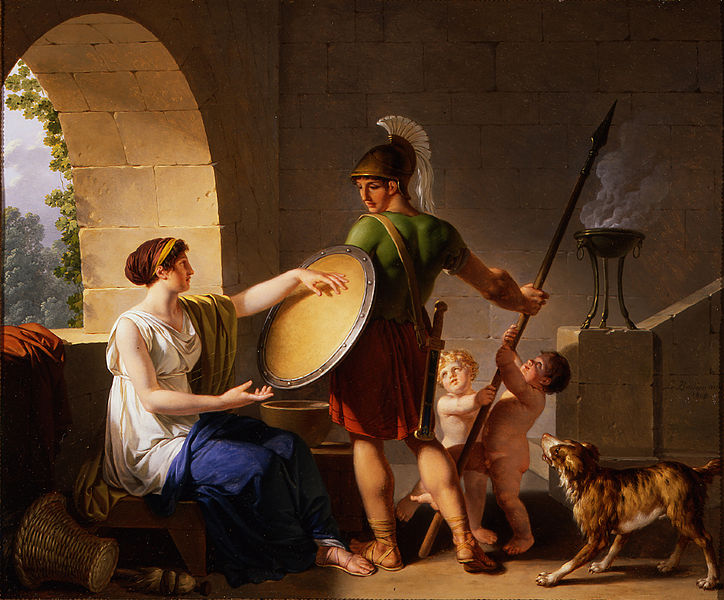
Spartan woman giving a shield to her son (credit: Le Barbier, via Wikimedia Commons)
At the same
time, their neighbours, the Spartans, were evolving their society, the perfect
military state. The clash called the Peloponnesian War became inevitable, and
Athens lost. A few years later, the Macedonians out-did the Spartans, and after
another generation or two, the Romans ended the matter by conquering them
all.
In each case, a
worldview, a set of attached values, and a set of behavior patterns, all
blended into a culture, were tried against that culture's neighbors and proved
just a little bit more vigorous. Evolution by constant testing and gradual
increments, the same as in the genetic domain, kept bringing a new human social
system to the top of the cultural food chain. Harsh. Real.
And note also
how cultural evolution by variation and selection of memes rather than genes is
tenuous and scary, but also much faster and more responsive than is evolution
by the genetic model. We can adapt to a changed set of weather patterns and
grow a new kind of crop and live off of it because we can watch, form concepts,
build mental models of reality and re-boot our way of life. In a generation or
two. Not blindingly fast, but much faster than the genetic mode of evolution.
Human.
For better or
worse, we not only adapt to changes in our environment (which always come), we
also do it in a few generations. In the genetic, Darwinian mode of evolution, a
few generations-long time span is nearly meaningless. In the human, cultural
mode of evolution, what we call an "era" can be less than five
generations. That kind of change fits the term revolutionary. It overturns almost every aspect of a tribe's life.
No comments:
Post a Comment
What are your thoughts now? Comment and I will reply. I promise.